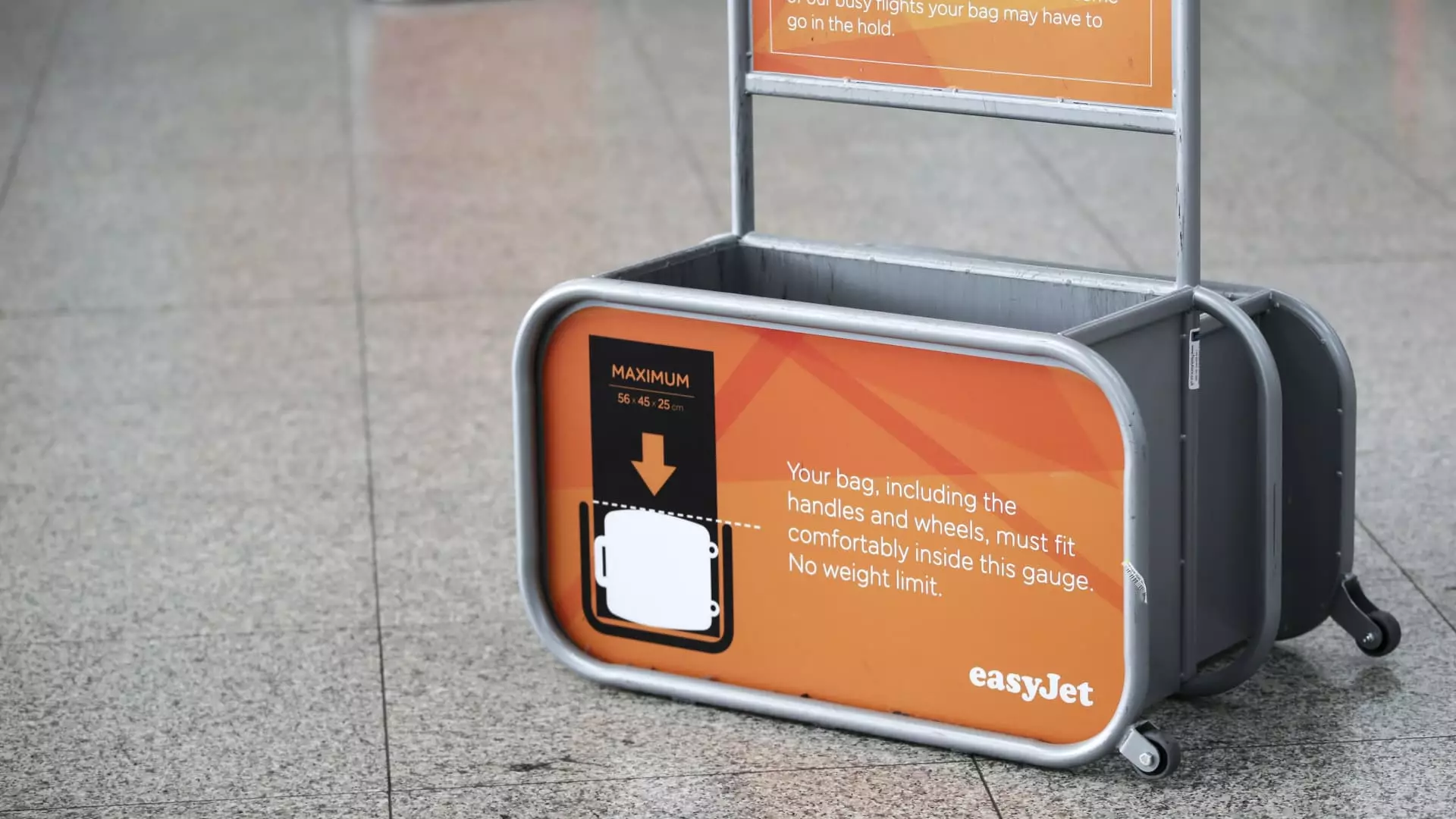In the ever-evolving landscape of the airline industry, ancillary revenues have become a pivotal component of business models, especially for low-cost carriers such as EasyJet. Recent reports indicate that EasyJet garnered a remarkable £3.59 billion (approximately $4.5 billion) from ancillary services in the fiscal year leading up to October. These services, which encompass everything from priority boarding to additional baggage fees, reflect a strategic shift in how airlines approach pricing in a fiercely competitive market. As the focus increasingly shifts toward bare-bones flight fares, the revenue derived from ancillary offerings has witnessed significant growth, with EasyJet’s ancillary revenue soaring by 22% year-on-year.
The surge in ancillary revenues is not merely a trend but a necessity fostered by several market dynamics. Airlines are competing to offer the lowest base fares to attract price-sensitive customers, leading to a reduction in what is traditionally included in ticket prices. EasyJet reported that ancillary revenue from its airline segment alone reached an all-time high of £2.46 billion, showcasing how airlines are monetizing additional services to offset the loss caused by lower ticket prices. This model allows airlines to cater to various customer segments, as not all passengers place the same value on extra services. In fact, one-third of EasyJet passengers reportedly opt out of ancillary purchases altogether, indicating a market where personalization and choice are at the forefront.
However, EasyJet’s business practices have come under scrutiny, particularly from Spain’s Ministry of Consumer Rights, which recently sanctioned the airline along with several other low-cost carriers for alleged “abusive practices.” The ministry’s concerns center on charges for hand luggage, seat selection, and other services, which they framed as unfair to consumers. EasyJet’s CEO, Johan Lundgren, voiced strong opposition to the fines—amounting to €29 million—arguing that they contradict European law. He addressed the issue within the broader context of customer choice, asserting that airlines should offer tailored products and services for those willing to pay for them. The debate here points to larger philosophical differences in airline operations: should customers who wish to travel light or without extra services be subsidizing those who seek more comprehensive offerings?
Industry Reactions and Competitive Dynamics
The backlash against the fines has resonated across the industry, with airlines such as Ryanair and Norwegian joining EasyJet in opposing the regulatory actions. The airlines argue that the penalties are disproportionate, especially in light of practices that have gained traction in the low-cost sector. Moreover, the fines reflect a shift in how ancillary charges are perceived, with mounting scrutiny regarding transparency in pricing and the accuracy of information presented to potential customers. This evolving regulatory environment poses questions about sustainability and fairness in airline pricing structures and could embolden new regulations limiting ancillary revenue models.
Financial Performance Amidst Challenges
Amid the controversy, EasyJet’s financial performance has shown resilience, reporting a profit before tax of £610 million—meeting analyst expectations and signifying a 34% increase over the previous year. Lundgren attributed this growth to a record summer performance along with a decrease in losses during the preceding winter, indicating that consumer demand for travel remains robust in Europe. This trend is promising as travelers prioritize vacations and travel experiences, even amid economic pressures influencing consumer spending behavior.
In contrast, competitors like Ryanair have experienced a downturn in profitability, underscoring the unpredictable nature of airline operations in today’s economy. Ryanair’s reported 18% fall in half-year profits—despite increased passenger numbers—is a stark reminder of the challenges stemming from fluctuating fares and operational inefficiencies. Additionally, issues with aircraft deliveries from manufacturers such as Boeing are prompting airlines to recalibrate growth strategies, illuminating the intricate relationships between operational execution, market demand, and financial performance in the airline sector.
The ongoing developments surrounding EasyJet highlight the complex interplay between business strategies in ancillary product offerings and evolving regulatory landscapes. As airlines navigate the delicate balance of catering to customer preferences while addressing regulatory pressures, it remains to be seen how these dynamics will shape the future of airline business models. The ability to adapt and thrive in this environment will determine not only the success of airlines like EasyJet but also the broader implications for the industry as a whole.

